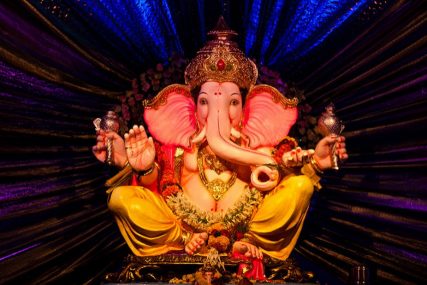(RNS) — The United States’ Christian population is smaller than it’s been in the past 50 years, with fewer than 65% of Americans counting themselves Christian. Still, more than 90% of the country observes the day in some combination of attending midnight Mass, putting up a tree, exchanging gifts and getting together with family.
For many in the minority who don’t, some alternative has been promoted or even invented to provide a parallel holiday: Hanukkah, Kwanzaa or, for those jaded by the commercialization of Jesus’ birth, Festivus, the secular celebration “Seinfeld” emphatically declared is for “the rest of us!”
Hindus, however, have no traditional counterpart to Christmas. Our religion has its own festival of light, Diwali, which celebrates the triumph of good over evil, but it falls no later than November. At the same time, Hinduism is so diverse, pluralistic and tolerant in our beliefs and practices, we can make room for pretty much any outlook — which means we’re open to different ways of coexisting with Christmas.
RELATED: How a small town in Wisconsin became home to four Dharmic houses of worship
Ramya Ramakrishnan, who spent the first 22 years of her life in India and now lives in the San Francisco Bay area, never celebrated Christmas while growing up. (Only 17% of Hindus in India participate in Christmas.) That all changed after she moved to the U.S.
“There is a lot of excitement and discussion about Christmas, so it was natural for me to start celebrating it, especially since both my children were born here. I wanted them to be exposed to different traditions and practices,” Ramakrishnan said. “I enjoy putting up the tree and decorating it. And my family is also musically inclined, so I used to sing and play Christmas songs when the kids were little. It brings some holiday cheer during the colder months.”

The Shah family Christmas tree in Massachusetts. Photo courtesy of Tejus Shah
Tejus Shah, who lives in central Massachusetts, said his Indian Hindu parents also didn’t observe Christmas before immigrating in 1985. “We did the gifts, the tree decoration, hung lights and participated in local community events,” Shah said.
“Obviously being a Hindu household, we didn’t go to church, but we did many of the non-religious stuff. There wasn’t really a challenge from a religious perspective.”
When Shah got older and married his wife, Kim, who came from a Roman Catholic background, his own Hindu background continued to pose no challenges to the holiday festivities, which only got bigger as their families celebrate together.
“Christmas now is just Christmas,” Shah said. “In our house, there are nativity statues and all, but nothing super-religious. The kids get their gifts. We watch the fun Christmas movies and chat with family. It’s a pretty low-key event from the faith angle.”
But for Grand Rapids’ Fred Stella, who grew up in America as a Catholic before adopting Hinduism as a teenager, even the spiritual aspect of Christmas continues to play an important role, albeit with a somewhat different meaning.
“As a Christian, I believed the holiday was observed to remind humanity that God himself incarnated to act as an offering of substitutionary atonement, thus freeing me from an eternity in hell,” Stella said. “While I no longer believe in Jesus as God, the need for salvation or the resurrection of the body, I’m able to venerate the birth of Jesus as an occasion when an enlightened teacher appeared to bring his understanding of dharma into the world.
“My approach to everything Jesus, including Christmas,” said Stella, “became and continues to become more refined. And I enjoy the holiday season in a deeper way.”
These perspectives show why some 73% of Hindus end up observing Christmas in some way in America. But even those who don’t celebrate Christmas at all often take the holiday to focus on spiritual growth.
Easan Katir, who adopted Hinduism as a teenager in Davis, California, uses the days of Christmas to commemorate Pancha Ganapati, a five-day Hindu festival that falls at about the same time honoring Ganesh, the god of new beginnings.
“Hindus celebrate this festival by prominently displaying a large Ganesh murti (devotional image) in the living room,” Katir said. “Each of the five days, gifts for family members are placed nearby, to be opened on the fifth day.”
Each day the image of Ganesh is decorated in a different color, with each color representing the god’s five darshans, or “auspicious glimpses,” that inspire harmony in one’s family. Yellow is followed by blue, for harmony with neighbors; red, symbolizing harmony in work; and green, inspiring flourishing of the arts, music, language and culture. On the final day, orange decorations inspire charitable giving and harmony with the world.
RELATED: An ‘old-school Hindu’ takes on the future of climate
These values, of harmony with the world and neighbors, give us a further hint why Hindus in America are so open to experiencing Christmas with their friends and extended families. Whether a person celebrates the holiday, or chooses not to, Hindus are able to embrace any holiday centered around love, family and unfettered open-mindedness.
“Hinduism, unlike many religions,” said Stella, “does not demand that one who adopts it as an adult abandon or denounce every aspect of their former religion.”
(Syama Allard is a writer for the Hindu American Foundation. The views expressed in this commentary do not necessarily reflect those of Religion News Service.)






